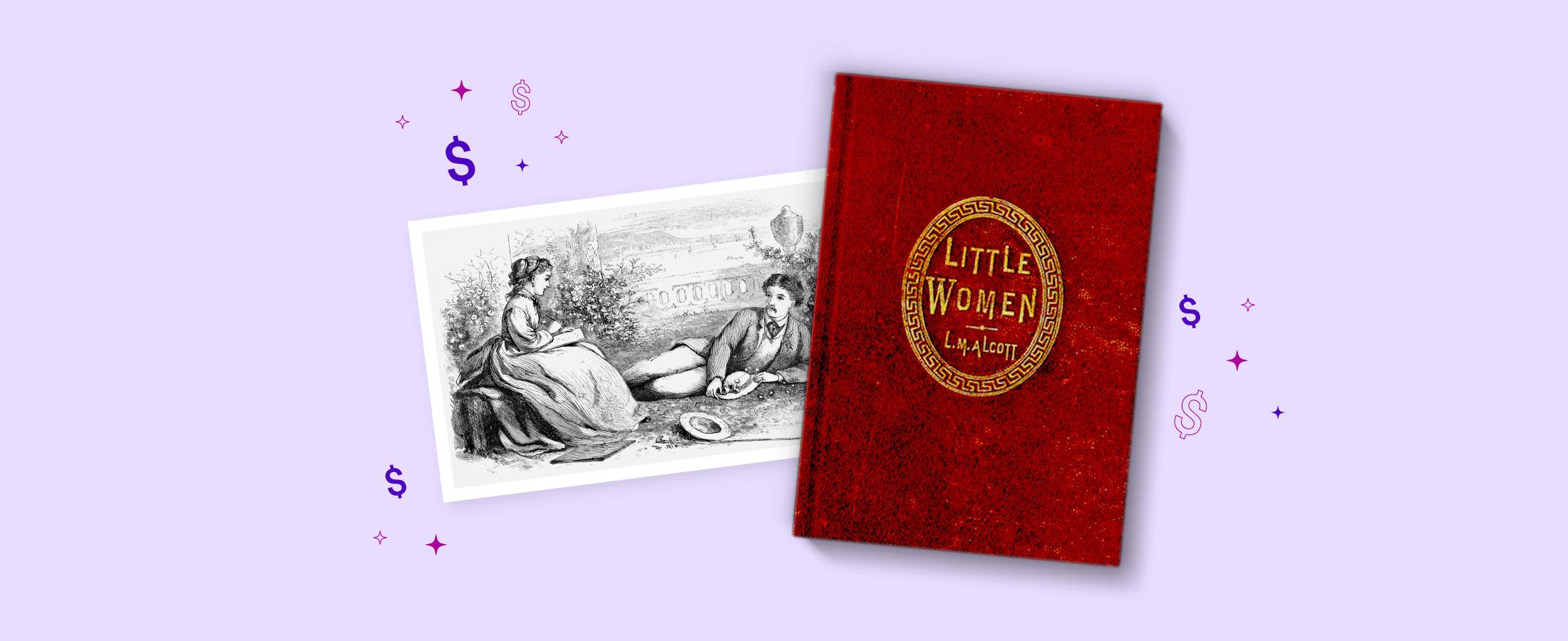Dec 20, 2019
5 Money Lessons You Can Learn from Little Women
Always have a backup plan and don’t spend all of your money on limes!

Louisa May Alcott’s Little Women, originally published in 1868, is a novel about an American family and the ambitious young women who are a part of it. But it also includes some valuable lessons about money, that could apply to all of us more than 150 years later.
In celebration of the Greta Gerwig’s star-studded Little Women movie, slated to come out December 25, 2019, here are five money lessons you can learn from the Meg, Jo, Beth, and Amy March:
Don’t spend all of your pocket money in one place.
Amy, the baby of the March family, learns this lesson the hard way when she blows all of her pocket change—which oldest sister Meg generously gives her—on “pickled limes,” so she can fit in with the other girls at school. Amy’s teacher takes her limes away and admonishes her in front of the whole class. Amy might have been better off if she had a budget. It’s important to save some of your budget, rather than spending it all on the things you want, but maybe don’t need.
Have a backup plan.
Jo has a backup plan when her father was injured on the frontline of the Civil War. To send her mother on the train to visit the injured Mr. March, Jo chops off her hair—her “one beauty” as Amy kindly reminds her—and sells it for $25 to fund the trip. Make sure you have rainy day and emergency funds so that you don’t have to sell your hair like Jo did.
Know your worth.
Jo learns the value of her work throughout Little Women. The local newspaper initially publishes Jo’s stories without paying her, with the promise of future payment. Years later, Jo sees another newspaper calling for submissions for a prize, Jo submits a new story, and is awarded $100 for her work, which makes a financial difference for her and her family. Men are more likely than women to ask for bigger raises in the workplace, which can contribute to the gender pay gap. It might be time to ask for a raise, and a significant one.
Plan for the future.
In a particularly dark scene, Amy is sent to live with the difficult—and wealthy—Aunt March while Beth recovers from a life-threatening bout of scarlet fever. While staying with Aunt March and contemplating death, Amy learns that she is included in her Aunt’s will. Amy decides to write her own will in case she contracts the sometimes deadly illness. In the will, Amy leaves her various prized possessions to her family members. If young Amy can think about the future, so can you. Make sure you’re prepared by saving for retirement and making sure you have the insurance you need.
Splurge when you can afford it.
One Christmas, the March sisters descend upon their kitchen to find an extravagant breakfast, which is a welcome surprise in their humble home. The sisters, who are portrayed by the author as almost unbelievably selfless, decide to bring their Christmas feast to a less fortunate family named the Hummels. There are two important lessons from this scene: the importance of spending a windfall of cash wisely, and the importance of sharing your good fortune with others. It’s the holidays after all!
Keep the financially savvy March sisters in mind this holiday season, and don’t spend all your pocket change on popcorn and Milk Duds.
Related Articles

The 2024 Financial Checklist: A Guide to a Confident New Year

9 Ways to Celebrate Financial Wellness Month

Budgeting for Young Adults: 19 Money Saving Tips for 2024

The Best Personal Finance Books on Money Skills, Investing, and Creating Your Best Life for 2024

What Is a Financial Plan? A Beginner’s Guide to Financial Planning

How to Save Money: 45 Best Ways to Grow Your Savings





